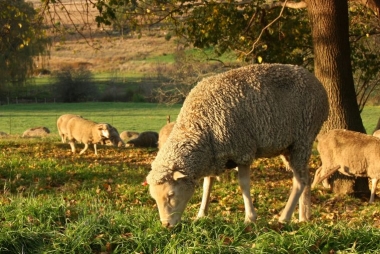South African sustainability standards for a comfier, woolly future
Whenever we hear the word sustainability we are often left confused about the actual meaning and sometimes it seems that different interpretations are applied to suit individual goals. We, therefore, need to consider sustainability within a textile framework, and more specifically, review production of animal fibres, from cradle to cradle.
The world is an ever-evolving place and the modern-day consumer is evolving as rapidly. Their idea of what is ethical and sustainable is adaptive and their demand for information is becoming more and more insistent – to the point of bordering on the absurd. Social media is used as a source of information and frequently perceived as true fact.
GLOBAL ETHICAL CONSUMERISM
When we speak about sustainability, it is often assumed that some of the Eastern cultures do not care and that the Chinese consumer is not sophisticated enough to apply ethical principles to their purchase
behaviour. The reality, however, is that the East, and China specifically, has changed dramatically and the average middle class is growing at a rapid pace. The Chinese consumer has evolved into a global shopper as focused on ethicality as their New York counterparts.
The big fashion brands is where it all begins. They set the trend and create the image of fashion and the feeling of luxury that the consumer aspires to. This is also where the pressure for these brands starts – to ensure they are in a defendable position when it comes to their raw material supply chains. From there it filters down to other household names and retailers and also to the interior sector of the market.
Consumers want to know that they can trust the brand they are buying and that the product they are wearing was produced in an ethical manner. Wool is a brand and the trust we put in the wool brand starts on the farm. To ensure that trust can be established with the consumer, we need to ensure there is transparency across the entire supply chain, and this starts with a traceable source from the farm.
Although a certified sustainably produced product may attract a premium within certain markets during certain cycles, it is predominantly an assurance of a market for the product, with the focus on the long-term entry to and acceptance by the market.
RESPONSIBLE, SUSTAINABLE WARRIORS
With such a rapidly growing range of standards and requirements from clients, farmers are often left confused and agitated by the number of different hoops they are required to jump through.
The so-called responsible wool standard (RWS) was implemented by an international body of powerful brands, retailers, and supply chain specialists, known as the Textile Exchange. The rapid growth in demand for RWS-certified wool has made this standard probably the most recognised in the global textile sector, with some members of the Australian wool-producing sector struggling to meet the non-mulesing requirements.
South African wool producers have a distinct advantage in that mulesing is not practiced and thus should be exploited as a marketing tool for South African wool.
Cape Wools SA is currently in the process of rolling out a strategy to establish broad sustainability guidelines, based on the initial code of best practice.
The strategy will establish guidelines which can be measured on-farm by means of an assessment. The guidelines will be based on the principles contained in various standards, such as the RWS, but will be user-friendly and set a standard across the Industry, without certification from the body concerned.
The industry standard could be referred to as ‘Sustainable Wool South Africa’ (SWSA) and displayed as such in the catalogue.
This will create the basis for a sustainable, traceable wool supply, integrated into a single platform, and which incorporates critical biosecurity recording principles.
The certification as currently registered by independent parties will remain, with the traceability platform making provision for all aspects of sustainable production.
Sustainable wool certification will endeavour to create a source of trustworthy, sustainable wool for the international market, without the accompanying costs of international certification requirements.
ON-FARM ASSESSMENT
The roll-out of the on-farm assessments will be conducted in conjunction with the National Wool Growers’ Association’s production advisors, with audits done on other platforms to be incorporated into a central database to eliminate duplication of assessments and audits.
Sustainability is something that stretches across the entire industry, and value chains will be put under the spotlight more and more to ensure they produce a product in line with market requirements. It is in the interest of every wool farmer to ensure they familiarise themselves with the standards as soon as these have been released and to measure them against market requirements.
South African wool farmers should regard the sustainability guidelines as an opportunity since the excellent practices already applied by farmers will meet most of these criteria.
As an industry body, it is the responsibility of Cape Wools SA to play a leading role in the implementation of guidelines for the wool industry, thereby creating long-term sustainable growth for the industry and all role players in the value chain.
